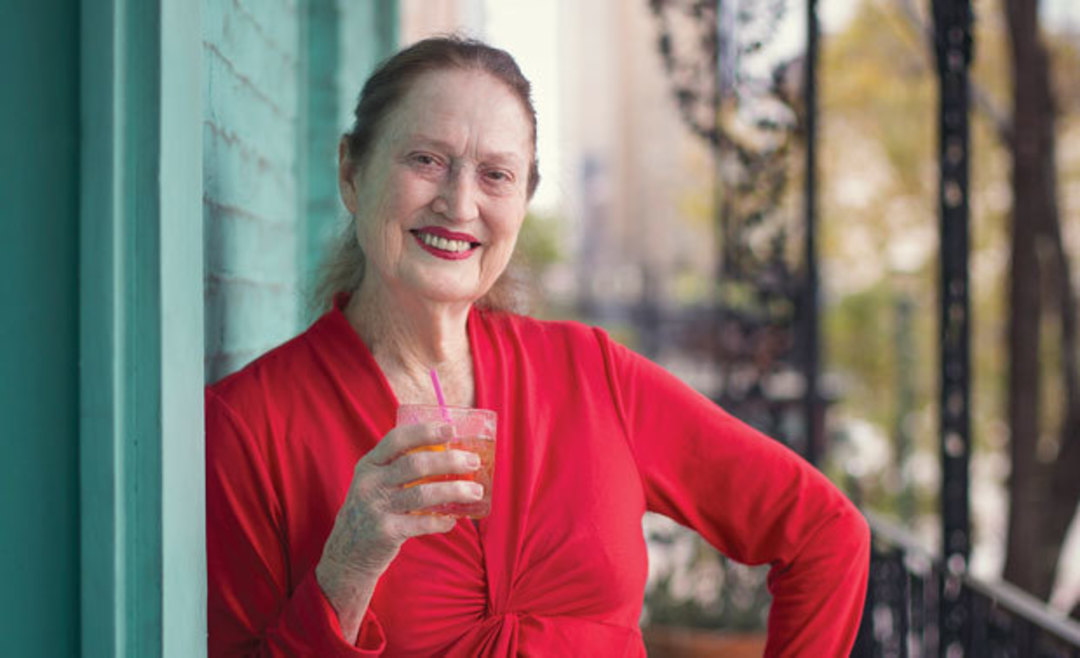Setting the Bar

Image: Todd Spoth
In Warren’s Inn on a slow Monday, Carolyn Wenglar tells her stories with equal parts grace and fluidity. “I’ve lived in Houston all my life and I’ve never run from a hurra-ken,” she says. “If you’re careful, there’s no need. And where would I run to?” The resilient proprietor of Market Square nightspots La Carafe and Warren’s Inn, is talking about the Great Hurricane Rita Panic of ’05, when several of her bartenders evacuated. Since both Warren’s and La Carafe are open 365 days a year—no exceptions—she opened the bars herself and tended bar at Warren’s. That’s the sort of gritty tenacity she’s brought to bear on these two downtown institutions since she took them over on May 22, 1988.
Now 77, the redheaded Wenglar has the bear-trap mind and slender build of a woman decades younger. This month marks her 25th anniversary on Market Square, and in that span she has become as revered as her bars. In this ephemeral metropolis of constant, frenetic demolition and rebirth, Wenglar, La Carafe, and Warren’s are some of the few soothing constants.
“I just believe you shouldn’t take an old building and dress it up with glitz until it looks like something you can find on every street corner,” she says. “You have something that’s unique, you want it to stay unique. You don’t fix something that works. You don’t tear that apart.”
Those bars of hers definitely work.
Both watering holes have uniquely burnished reputations in these parts. For decades, Warren’s has been the spot where Houston Chronicle scribes, courthouse attorneys, and a staggeringly motley crew of Bayou City eccentrics rub shoulders at the horseshoe bar. With a mix of classic country, soul, jazz, and blues Warren’s jukebox serenades imbibers of the strongest old-school cocktails in town, all amid tall smoky mirrors, dim lighting, red velvet wallpaper, and a raised gazebo—because why not?
Catty-cornered across the square, La Carafe is the venerable nightspot where we take out-of-towners to demonstrate that Houston has at least one historic landmark worth toasting. The cozy wine-and-beer pub transports tipplers to lamplight-era Houston. Built in 1861, what was once the Kennedy Bakery is now the city’s oldest remaining commercial building. The period detail promised by the two-story structure’s tilt (some call it the Leaning Tower of Houston) and hand-fired brick exterior only intensifies inside. Candles standing atop stalagmite-like wax drippings provide most of the light. Bartenders ring you up on a 1914 brass National push-button cash register—cash only, please.
Back in June of 1962, on the occasion of its opening, a Houston Press writer assured his readers that La Carafe promised “nuances of New Orleans, glimmerings of Greenwich Village, and leanings toward the Left Bank of Paris,” and hoped the bar would usher in “a charming little city within a city.”
That day has still not come, but it just might be dawning. There are now concerts and a Niko Niko’s in the square. Bitterman’s Market Square Bar and Grill and the Char Bar have joined Wenglar’s duo as nightlife mainstays.
Meanwhile, on and around lower Main Street, it’s Reboot City. After false starts in the 1960s and 1990s, and most recently, a decade or more of slow fizzle, the effervescence is back in Main Street’s champagne.
For the past few years, Houston’s bar and restaurant scene has boomed everywhere but in the heart of town. Warren’s and La Carafe have long been popular among nightlife cognoscenti (particularly restaurant and bar owners, who consider Wenglar nightlife royalty), and in the past year or so the spirit of Bacchus would often turn their talk to a downtown takeover. They wanted to get it right this time, move the area away from the previous decade’s run of pretentious dance clubs that shuttered before their velvet ropes had time to fray. Wenglar’s bars provided the exemplar, and this year, four more down-to-earth restaurants and bars have opened.
Laverne Carolyn Trousdale was raised in Depression-era Bellaire, where the family kept horses and a hundred chickens. Her parents instilled in young Carolyn a devotion to hard work. Her mother also taught her to refuse to accept any limitations on what she might do just because she was a girl, and by the time she was 14, Carolyn had learned to hotwire a car. (By necessity: the car was a beat-up old Ford coupe with a worn-out ignition.) Many years later, after marriage and the births of her three children, she drove trucks on her father’s Brazoria County rice farm after he fell ill. “One of them had no floorboards. Ah me,” Wenglar laughs. “You could see the road right under your feet.”
By that time her brother Warren was already ensconced on Market Square, first at a wine bar called Ali Baba, and then, around 1978, the first incarnation of Warren’s. That was a grand palace of a saloon, a former Gilded Age opera house with 16-foot ceilings, lavish New Orleans-style architectural touches, and majestic chandeliers. Liberace was known to drop in on Houston stops. One time, legendary Warren’s bartender Jose Serna tossed a bar rag over the flashy piano man’s bejeweled fingers. “Those rings are blinding me,” Serna said. “I can’t get any work done back here.”
Carolyn started coming in to do the books, play the organ, and reupholster the antique bar stools. By the early ’80s, downtown after dark was a post-apocalyptic ghost town, but Warren’s was a holdover from the heyday.
Not surprisingly, big developers wanted the site for an office building and parking garage. Warren Trousdale declined repeated offers. A few years ago Wenglar told a curious writer that unknown parties stuffed t-shirts in their toilets and destroyed their sewer line by pouring in cement. Since the new hookup was too costly, her brother had no choice but to sell out. Old Warren’s closed at midnight on December 18, 1987. Wenglar says they had the new Warren’s up and running across the square by lunch the next day. Le roi est mort, vive le roi!
Six months later, shortly after the now-bankrupt bank that bought old Warren’s demolished it, Warren passed away, his legacy safely in his sister’s hands. There was nothing else like it in Houston then, and there’s nothing else like it now. Wenglar says it will remain that way after she passes it down to her son.
“He’s not going to change anything,” she says, and pauses for thought. “But maybe I need to talk to him about that one more time.”




